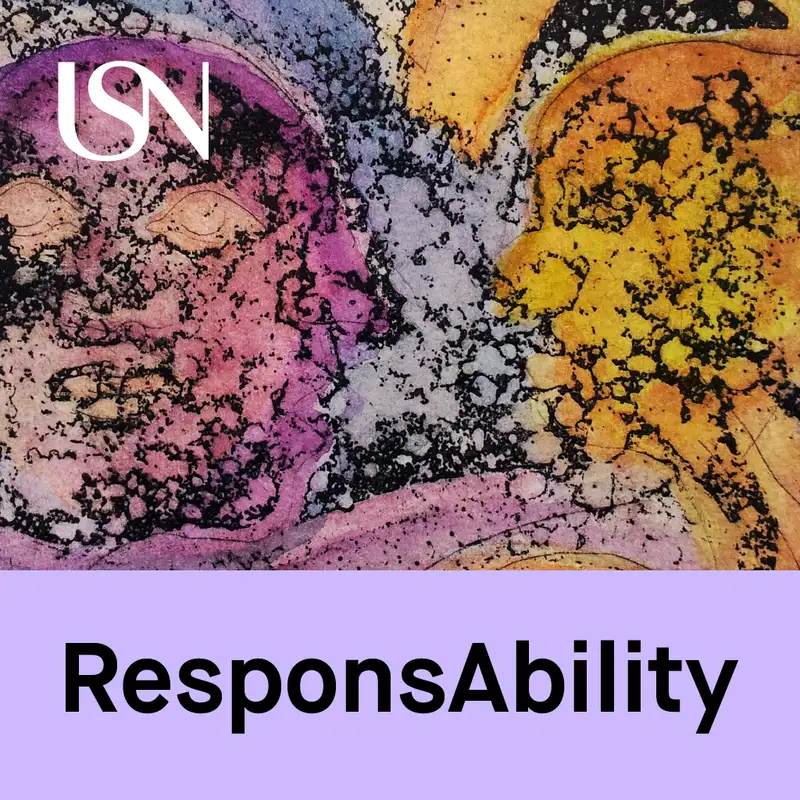#11 Shaun Gallagher | On Astronauts in Awe, Phenomenology & Self-knowledge
TRANSCRIPT SUMMARY
(This transcript summary was AI-generated and then edited by the podcast hosts for quality assurance)
# 11 SHAUN GALLAGHER | ON ASTRONAUTS IN AWE, PHENOMENOLOGY & SELF-KNOWLEDGE
- a podcast dialogue with Michael Noah Weiss and Guro Hansen Helskog
INTRODUCTION
In this episode of the ResponsAbility Podcast, Shaun Gallagher—renowned philosopher and expert in phenomenology and cognitive science—joins hosts Michael Noah Weiss and Guro Hansen Helskog for a wide-ranging conversation. Together, they explore topics such as the experience of awe in space travel, the nature of embodiment, the role of interpretation in education, and how practical wisdom can be cultivated in professional life.
AWE, WONDER, AND THE VIEW FROM SPACE
The conversation begins with Gallagher’s work on the lived experience of astronauts. Many describe profound feelings of awe and wonder when viewing Earth from orbit—experiences that often lead to lasting ecological awareness. To explore this, Gallagher and his team simulated spaceflight for over 100 participants, using brain imaging and physiological measurements alongside phenomenological interviews.
Their findings suggest that awe isn’t just an emotional spike but a transformative experience that shifts perception and values. Gallagher distinguishes between awe—an immediate, often overwhelming reaction—and wonder, which involves reflective engagement. Through this work, he shows how phenomenology helps capture the depth of such experiences by grounding them in lived, first-person perspective.
WHY PHENOMENOLOGY?
When asked why he turned to phenomenology, Gallagher explains its value in describing how we experience the world from within. Originating in the work of Husserl and Merleau-Ponty, phenomenology provides structured tools for analyzing subjective experience—tools increasingly used across disciplines like cognitive science, psychiatry, and economics.
Gallagher advocates for "neurophenomenology," which combines phenomenological insights with neuroscience. This approach allows researchers to link personal accounts with empirical data, leading to a fuller picture of human consciousness.
PHENOMENOLOGY IN PRACTICE
Beyond space travel, Gallagher discusses phenomenology’s wide application—from psychiatry, where it helps understand conditions like schizophrenia, to education, where it sheds light on how students and teachers experience learning. In economics, phenomenology contributes to the growing field of embodied decision-making, showing how bodily and environmental factors shape our choices.
He also emphasizes its use in the arts and healthcare, where it helps explore how people experience movement, music, and care. Phenomenology, he argues, isn’t limited to theory—it’s a practical tool for engaging with real-world human experiences.
DEFENDING THE FIRST-PERSON PERSPECTIVE
Gallagher responds to critiques that phenomenology is too subjective by pointing out that all scientific work on perception, memory, or consciousness ultimately relies on first-person reports. Phenomenology offers a rigorous way to analyze such reports, going beyond folk psychology by using structured methods.
He argues that even though traditional behaviorism tried to sideline consciousness, meaningful research must take subjective experience seriously. Combining first-person and third-person methods enriches our understanding of the mind.
EMBODIED COGNITION AND DEVELOPMENT
A major theme in Gallagher’s work is the idea that cognition is not just a brain-bound process. From infancy, bodily movement and social interaction shape how we think and learn. He critiques older models of cognition that treat the mind like a computer, and instead argues for an "embodied" view—where thought emerges from our physical and relational engagement with the world.
This view has powerful implications for education. Learning isn’t just about abstract reasoning; it’s rooted in doing, moving, and interacting with others. Teaching, Gallagher suggests, should embrace these embodied and social dimensions of cognition.
HERMENEUTICS AND THE ROLE OF DIALOGUE
Drawing on hermeneutics—the philosophy of interpretation—Gallagher emphasizes that learning is fundamentally dialogical. Understanding grows through conversation and shared meaning-making. Influenced by Hans-Georg Gadamer, he sees education not as transferring knowledge, but as engaging in interpretation shaped by culture, context, and relationships.
Students don’t simply absorb facts—they interpret their experiences. Education, then, should help learners reflect on their assumptions, encounter new perspectives, and deepen their understanding of themselves and the world.
PRACTICAL WISDOM AND PROFESSIONAL JUDGMENT
Gallagher also explores the concept of phronesis, or practical wisdom—a key virtue for professionals in fields like teaching, nursing, or engineering. Practical wisdom involves more than technical skill; it requires ethical judgment, self-awareness, and responsiveness to context.
He draws on the work of Hubert Dreyfus to highlight how expertise grows through experience and embodied practice. While phenomenology can support this development, Gallagher stresses that wisdom isn’t the product of method alone—it depends on the relational and institutional settings in which people learn and work.
Rethinking the Self
Gallagher introduces his "pattern theory of the self," which sees the self as a dynamic interplay of bodily, emotional, cognitive, and social elements. Rather than being fixed or located in a single part of the mind, the self is formed through patterns of experience, interaction, and reflection.
Self-knowledge, in this view, means recognizing how these patterns shift over time and in different contexts. This understanding challenges simplistic models of personal identity and offers a more nuanced approach to self-development.
AWE, SPIRITUALITY, AND ETHICAL AWARENESS
The episode returns to the theme of awe, reflecting on how experiences of wonder can foster a sense of responsibility. Gallagher notes that astronauts often become more attuned to environmental and humanitarian concerns after seeing Earth from space. Such experiences, he suggests, can lead to deeper ethical reflection and a renewed commitment to care for others and the planet.
This connection between awe and professional responsibility points to the importance of nurturing wonder—not just in extraordinary settings like space, but in everyday life and education.
CONCLUSION
Throughout the conversation, Shaun Gallagher demonstrates how phenomenology bridges philosophical insight with scientific inquiry. Whether discussing space travel, education, or the nature of self, he shows how first-person experience is central to understanding what it means to be human. His reflections invite us to take our embodied, relational lives seriously—and to think more deeply about how we teach, learn, and live with responsibility.
